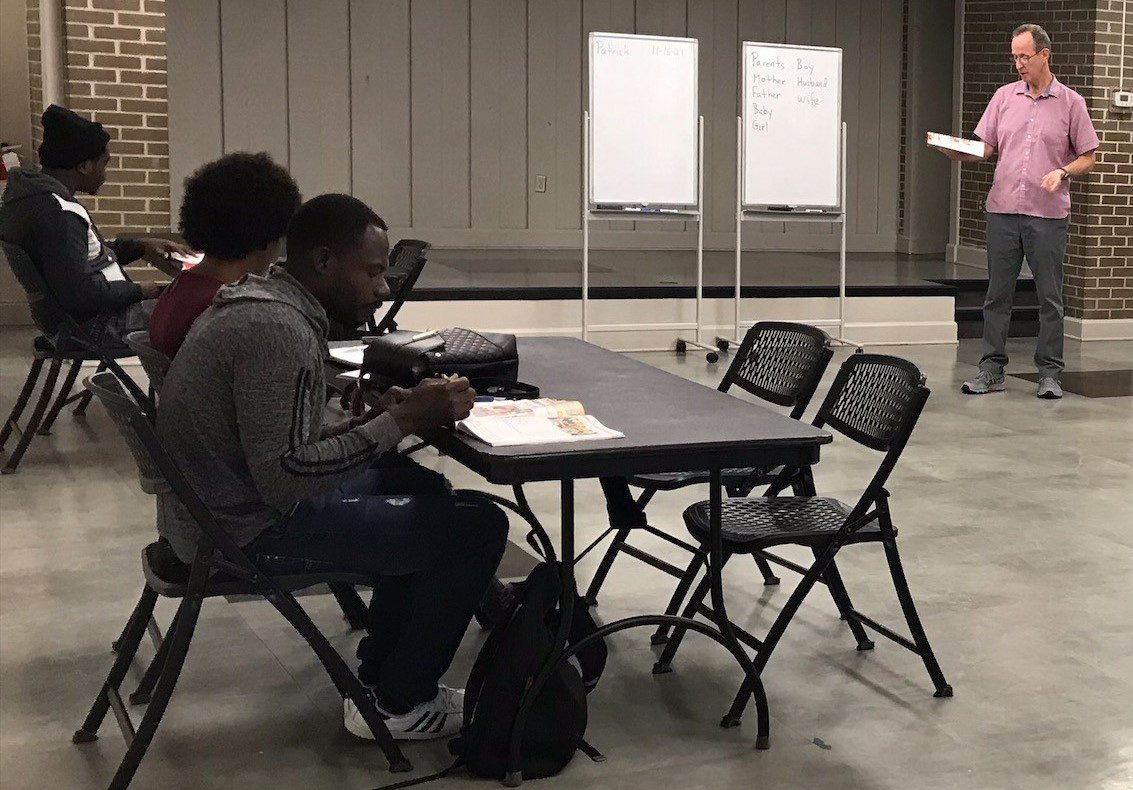ORLANDO | Learning English is a key to survival and stability in the U.S. Since 2016, Catholic Charities of Central Florida’s Comprehensive Refugee Services has offered English classes to those arriving as refugees or asylees, seeking a life of peace, freedom and safety. During the first year of the COVID-19 pandemic, classes went completely online. Today, in-person classes are also offered and aim to help immigrants succeed.
Running online classes during the first part of COVID “was a big challenge because of the technology and availability of smart devices for clients,” explained Shaimaa Elawdan, ESL and youth program coordinator for Comprehensive Refugee Services at Catholic Charities of Central Florida. After working across several platforms, she was grateful when she was again able to offer classes at Catholic Charities headquarters in Orlando. In October, she expanded courses to the Orlo Vista location in a desire to make sessions more accessible.
Students come from Haiti, Venezuela, Cuba and other countries, but Elawdan said, “We are open to anyone from any country who fulfills the requirements.” All must be at least 18 years old and be in the United States for less than five years. They must also have refugee or asylee status. Multiple schedules and hours are available to accommodate clients’ varying needs. More advanced students are sent to Orange Technical College or other schools to continue at higher levels.
Elawdan was herself an asylee from Egypt in 2013. She saw the English classes as a vital piece to integrated services at Catholic Charities. The program is refined each year for success. Material about U.S. citizenship was recently added to familiarize students with vocabulary and knowledge needed to become a citizen. “We are also showing them how to fill out employment applications, find work, and other related material to finding a job,” Elawdan said. “We hope this will help them obtain U.S. citizenship and job opportunities. They even learn to share about themselves to be ready for interviews.”
Elawdan said the English as a Second Language class is “part of the integration of services.” Sessions include mock interview and employment skills that assist with job placement for those in the adult education program. “Their language and interview skills are also linked to the employment and vocational programs.”
Fritz Manigat arrived from Haiti in 2017. He currently works for Catholic Charities as a case manager. “When I first came to America it was difficult for me to communicate,” Manigat said. “So, I got in this class and it helped me practice my English until it became better. The English class has helped me get a job and go to college too.”
 Elawdan is hoping to add an English class designed specifically for the youth program “to teach clients about life in the United States, their new community – things like school vocabulary; what to say when you go to the doctor’s office; American culture,” she said, adding she loves to share her story and reminds her students, “I was once on the other side of the desk as a client.”
Elawdan is hoping to add an English class designed specifically for the youth program “to teach clients about life in the United States, their new community – things like school vocabulary; what to say when you go to the doctor’s office; American culture,” she said, adding she loves to share her story and reminds her students, “I was once on the other side of the desk as a client.”
“I think it can be motivational for people who feel discouraged that life is hard here,” she said. “There is hope. Just try one day at a time and do your best. Catholic Charities changes lives.”
For more information on English classes and requirements, call to make an appointment, 407-277-1938.
By Glenda Meekins of the Florida Catholic, November 17, 2021

